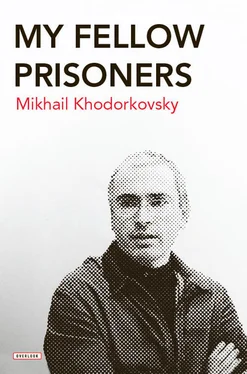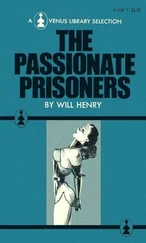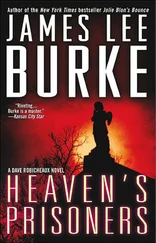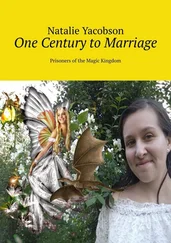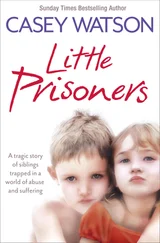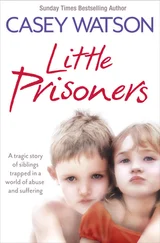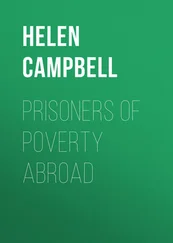He’s reluctant to talk much about his past in the camp, but on the whole he’s honest.
‘Did you beat people up?’
‘Well, these days, of course, it’s all “Would you be so kind as to…”, but in the past, yes, I beat people up… How could you refuse? They call you in and say “Go and deal with him.” If you don’t, you know they’ll give you the full treatment in the isolation cell.’
‘Did you enjoy beating people?’
‘Of course I didn’t. I can resolve it without violence but they don’t understand that, they’ll say you’re a wimp. A lot of them, though, do enjoy it. The feeling of power…’
‘And what about later, on the outside? After all, you could bump into someone you’ve done over.’
‘Could do. And it does happen. Not to everyone, of course. When these guys are released they get taken out of the camp in a bread truck, driven straight to the train. But in any case they’ll find them. It’s just that they only start thinking about that a couple of months before they’re let out. They’re thick-headed…’
Vyacheslav lets out a deep sigh, clenching and unclenching his fists with their battered knuckles. The conversation has clearly unsettled him. He’s due out in a year himself…
And I can’t help thinking of the thousands of people who are just like him, though to all appearances they’re ordinary decent servants of the current regime. People who, in ten years’ time at the most, will be grating their teeth and shaking in their boots as they realize that their time is over, and that criminal behaviour will always come back to haunt you in the long run.
He answers to the name of Rustam, although his ID card says otherwise. However, this too is a lie: he’s in prison under forged documents, something he doesn’t try to hide.
He says that when he told the investigating cop that it wasn’t his real name and that he’d already done time in Russia, the cop just flailed his arms at him and replied: ‘Button it. Don’t even think of telling the judge. They’ll send your case back to me and I won’t be able to go off on holiday…’
‘And what was it to me?’ Rustam shrugs. ‘He didn’t need the hassle, neither did I. So they convicted me as a “first-timer” which is why I ended up in here. If I’d known, I’d never have agreed to it.’
‘What, you mean it’s better in maximum security?’
‘You bet,’ he replies, his eyes half-closing at the pleasant recollection. ‘Doing time in Krasnodar I had everything, I didn’t want to leave. The warden even said as much: “Why take early parole, you’ve got everything you need here? Stay!” And so I stayed…’
Rustam’s nationality is Tadjik; his profession – thief. It’s a ‘profession’ he loves and you get the sense he wouldn’t change it for anything. He’s already nearly forty but this is only his second spell in prison. He got four years. He regards what happened as an acceptable ‘professional risk’.
‘In fact we get nabbed quite often,’ he admits. ‘After all, it’s usually markets and warehouses we go for, the haul is fairly big. The patrol-guard police know where to wait for us. Generally we come to an agreement, but this time – it was my own stupid fault – I didn’t bring any money with me. So I couldn’t buy my way out of it. And they were rookies. If I’d known them I could have paid them off later. It was bad luck…’
Rustam, it seems, likes telling stories. He works next to me in the workshop. His stories relieve the boredom.
‘Then there was the time we got a tip-off about a warehouse – we were told there was money in the safe. So we hire a pick-up and promise the driver we’ll settle up after the job. When we break into the warehouse, what do we find? Eight safes. We load them all in. While we’re at it we toss in a few crates of butter, honey, jam – whatever was in the warehouse. No point going off with a half-empty vehicle, right?’
Rustam gives me a questioning look. I can’t help smiling. He’s satisfied with my reaction.
‘So we get to the destination, unload the safes; the driver’s waiting on the street. We open the safes – there’s no money. Not a brass farthing. Just some bits of paper and a few seals – complete garbage. We’re thinking, how are we going to tell the driver, he’ll never believe us. It has to be done, so I go out to where he’s waiting. I tell him, look, this is how it is, the safes are empty, don’t be mad at us, take the food. The driver nods, looks at me with pity, and says, “Well, you lot have had a tough night of it, take this,” and hands me a few notes from his wallet. I take them and go back to the others. Those few thousand came in pretty handy, as it turned out.’
We both laugh.
‘What will you do afterwards?’
Rustam makes no secret of it: ‘I’ll go back home, change my passport and then either head back to Moscow or make my way through Turkey to France. I know a lot of people there. They’ll help me out.’
‘In your previous “profession”?’
‘What else can I do?’
A month later we say goodbye to each other. Rustam’s getting early parole, he promises to write. And soon after, I do receive a brief letter from him, and a photograph of Rustam, happy with life, a few pounds heavier, some neat little houses behind him. And further beyond – the sea.
There’s no return address, but he writes regularly to the guys and sends his greetings.
In prison and camp, amnesties are endlessly discussed, rumoured, anticipated. Even when there is no reason to assume that an amnesty is on the cards.
And when this sacred word is actually pronounced, out there ‘on the outside’, it creates an atmosphere of universal hope. Inmates latch on to every word heard from relatives or on the radio, and pass it on. Just let that day of freedom be brought closer, if only by a month or so.
After all, conditional early release on parole is far from being an option for everyone. It could be that there are ongoing legal claims against you, which you can’t pay off; or the administration might be biased against you, particularly if you’re seen as ‘too clever by half’. Or the police or investigator who conducted your case might make an informal ‘request’ to deny release. Or else someone who doesn’t want you to be on the outside just pays a simple back-hander. There are many ways to stymy you, to send you back to your seat ‘until the bell goes’.
An amnesty is like waiting for a miracle to happen.
And then here it is! You get your hands on a draft of the proposed decree. You desperately search for your category of conviction to see whether it’s been amnestied. You find it – oh joy! Hope made flesh in paper and ink. You start calling your relatives; they experience delight, mixed with anxiety. And then you wait.
It’s only the old lags, whose lives can no longer brook illusion, who give a wry smile in answer to questions. So they are carefully given a wide berth. Scepticism is scary, even infuriating: how can you not believe in a miracle? Look, here it is, right in front of you: they’ve declared a ‘sweeping amnesty’, 150,000 people, it’s going to impact on everyone to some extent, surely…
The big day arrives. Everyone stands frozen in front of the radio, listening.
No! This can’t be! Not one person! Only 2,000 from all the camps?! And in any case that’s just women, juveniles and invalids, and not many of them even… But what about us?! Are they really saying there’s nothing, not even a day?! It can’t be true…
The old-timers’ eyes are sad. They don’t take any satisfaction in being proved right. It’s just the same as always. And as always they feel sorry for those who haven’t yet learned ‘not to believe’.
Читать дальше
